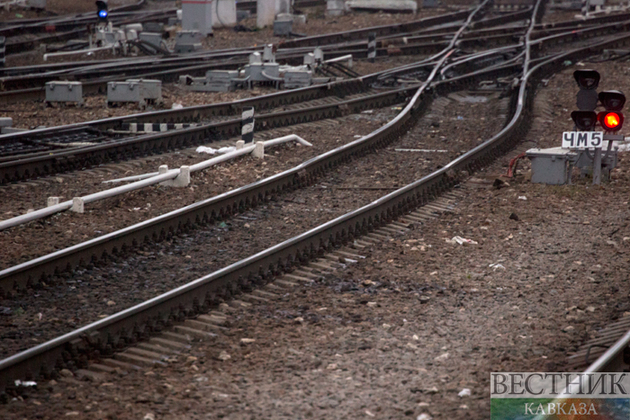The development of the Middle Corridor transportation lane of Georgia, Azerbaijan and Türkiye, and the increase of competitiveness of the corridor were discussed on Tuesday in a tripartite meeting between Georgian Economy Minister Levan Davitashvili, Azerbaijani Digital Development and Transport Minister Rashad Nabiyev and Turkish Transport and Infrastructure Minister Adil Karaismailoğlu.
At the meeting, held in Georgia’s capital city of Tbilisi, the sides highlighted the importance of development of the transit and transport corridors connecting Asia and Europe, against the background of recent political-economic events in the wake of the ongoing Russian invasion of Ukraine, and noted that these corridors have become one of the “most attractive routes” for the East and the West, the Economy Ministry said.
Davitashvili stressed the “utmost” importance of cooperation between Georgia, Azerbaijan and Türkiye and said that “concrete” decisions had been made at the meeting, which would “certainly” contribute to the competitiveness of the corridor, also adding that the sides had discussed “specific” existing problems and had taken solutions to speed up cargo turnover, by using the three countries infrastructure, which would “finally” create a “real alternative” to the current transit and transport routes.
Karaismailoğlu also made comments after the meeting and said that the development of the Middle Corridor project has become possible by already existing Baku-Tbilisi-Kars railway and Marmaray Tube Crossing projects, which would in its turn give an opportunity for cargo to reach London from China in a “non-stop” mode, also noting that the project would be important not only for the Caucasus region, but for the “whole world” as well.
The Ministers also discussed the current situation, prospects and directions for further development, and made decisions on increasing railway transportation between the countries and the timely completion of the construction of the Baku-Tbilisi-Kars railway project.
In his comments, Nabiyev highlighted an increased international interest in the Middle Corridor, in which Azerbaijan, Türkiye and Georgia represent an “important” part of it, and noted that the goal of these countries has been to enhance the efficiency of the corridor by revising the issues concerning regulation of tariffs and synchronisation of regulations and activities across the borders.






